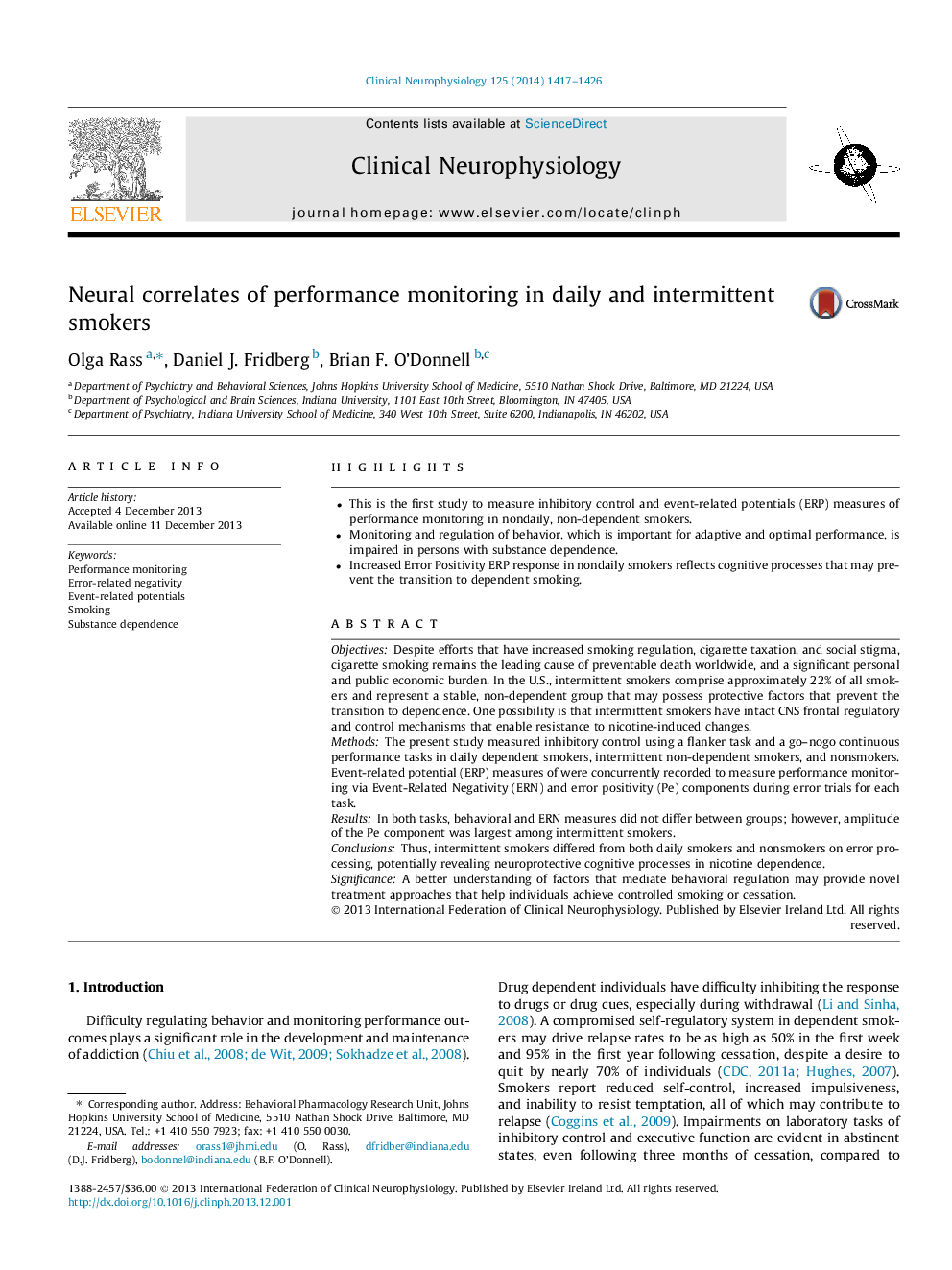| Article ID | Journal | Published Year | Pages | File Type |
|---|---|---|---|---|
| 3043914 | Clinical Neurophysiology | 2014 | 10 Pages |
•This is the first study to measure inhibitory control and event-related potentials (ERP) measures of performance monitoring in nondaily, non-dependent smokers.•Monitoring and regulation of behavior, which is important for adaptive and optimal performance, is impaired in persons with substance dependence.•Increased Error Positivity ERP response in nondaily smokers reflects cognitive processes that may prevent the transition to dependent smoking.
ObjectivesDespite efforts that have increased smoking regulation, cigarette taxation, and social stigma, cigarette smoking remains the leading cause of preventable death worldwide, and a significant personal and public economic burden. In the U.S., intermittent smokers comprise approximately 22% of all smokers and represent a stable, non-dependent group that may possess protective factors that prevent the transition to dependence. One possibility is that intermittent smokers have intact CNS frontal regulatory and control mechanisms that enable resistance to nicotine-induced changes.MethodsThe present study measured inhibitory control using a flanker task and a go–nogo continuous performance tasks in daily dependent smokers, intermittent non-dependent smokers, and nonsmokers. Event-related potential (ERP) measures of were concurrently recorded to measure performance monitoring via Event-Related Negativity (ERN) and error positivity (Pe) components during error trials for each task.ResultsIn both tasks, behavioral and ERN measures did not differ between groups; however, amplitude of the Pe component was largest among intermittent smokers.ConclusionsThus, intermittent smokers differed from both daily smokers and nonsmokers on error processing, potentially revealing neuroprotective cognitive processes in nicotine dependence.SignificanceA better understanding of factors that mediate behavioral regulation may provide novel treatment approaches that help individuals achieve controlled smoking or cessation.
